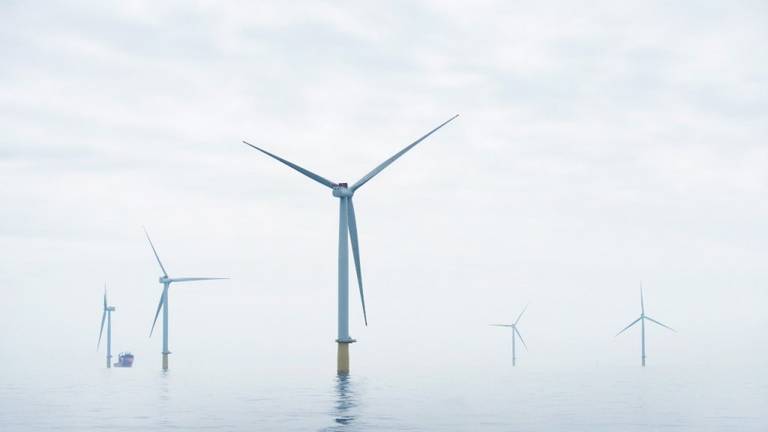
A clean energy technology thought to be outrageous just a few years ago may soon become the reality – and profitable. And this development is due to two companies, both from nations that have long been reliant on fossil fuels to power their economies. Now their countries’ marquee energy brands are partnering on technology that could help offshore wind power scale up worldwide.
Last week, Masdar (Abu Dhabi Future Energy Company) and Equinor (former Statoil) announced they have installed a new battery system designed to store electricity generated by Hywind Scotland, which bills itself as the world’s first offshore floating wind farm.
According to Masdar, this battery system, known as “Batwind,” boasts a total storage capacity of 1.2 megawatts, or the equivalent battery capacity of over 1.3 million iPhones. The real value, however, is not simply its energy storage capacity. According to both companies, Batwind’s strength is its ability to smooth out the chaotic peaks and valleys in electricity production, which would optimize the commercial value of Hywind Scotland’s electricity generation. In addition, this project will help evaluate now next-generation battery storage systems can most effectively transmit power from clean energy installations from such plants to local power grids.
“The value in storage is not necessarily in the amount of energy you can store, but how you optimize, control and offer smarter energy solutions. By developing Batwind, we get real time data, commercial experience and technical verification,” said Equinor’s Sebastian Bringsvaerd, the company’s development manager for Hywind and Batwind, in a public statement.
For Norway, Batwind is another step in the country’s drive to wean itself from fossil fuels. The country’s sovereign wealth fund announced it would divest from coal companies; the same fund also sued Volkswagen in the aftermath of that automaker’s emissions scandal. Norway’s road to a “greener economy” has not always been smooth; critics have charged that the wealthy Nordic country is simply exporting its carbon emissions. But at the same time, Norway’s citizens have been embracing electric vehicles while its government has been wielding carrots and sticks in urging Brazil’s government to curb forest destruction in the Amazon.
Masdar could also benefit from its investment in Batwind, if a recent IRENA report that suggests the cost to implement battery storage systems could plunge from current levels by two-thirds at the end of the next decade proves to be accurate. As one of several tools in the United Arab Emirates’ kit to diversify its economy in the long term, Masdar has strung together a long trail of clean technology investments. They range from renewables-powered desalination to the launch of clean energy projects worldwide, from the South Pacific to the Indian Ocean to the UAE’s Middle East neighbors such as Jordan. Since Masdar launched in 2006, the company says its investments in renewable energy projects have totaled $8.5 billion.
